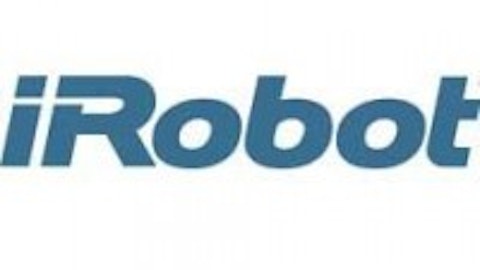Steve Ballmer has finally announced his departure from Microsoft Corporation (NASDAQ:MSFT) within the next year, and the stock was up by more than 7.3% on Friday as investors cheered the news. Ballmer’s departure was long overdue, and it’s a step in the right direction for Microsoft Corporation (NASDAQ:MSFT).
But the company is hardly out of the woods. Microsoft is in a tough position as it continues losing relevancy due to major technology trends like mobile and cloud computing. Ballmer’s exit was necessary, but not enough to merit a long position in Microsoft.
The rise and fall of Microsoft
Ten years ago, Microsoft Corporation (NASDAQ:MSFT) was the undisputed leader in the global technology business. The company had an almost monopolistic position in operating systems and productivity, thanks to Windows and Office. This meant not only big and growing cash flow for shareholders, but also an enormously valuable strategic asset.

Microsoft Corporation (NASDAQ:MSFT) was so comfortable, it could afford to follow the strategy of not trying to be the first to innovate, but the first to profit. This meant selling its own versions of new technologies as opposed to building new things from scratch.
The Netscape vs. Explorer example can be quite illustrative about how this used to function: By owning the operating system in the vast majority of computers around the world, Microsoft Corporation (NASDAQ:MSFT) managed to beat Netscape in spite of starting in second position in the browser race.
The company had the strategic and financial resources to sustain its leadership through the years, but it did not have the same innovative drive as Apple Inc. (NASDAQ:AAPL) and Google Inc (NASDAQ:GOOG). Even worse, Ballmer underestimated the risks coming from major industry trends, and that turned out to be a very expensive mistake.
Ballmer famously mocked the iPhone: “There is no chance that the iPhone is going to get any significant market share,” he said in 2007. He also called Google “…not a real company, it’s a house of cards.” Ballmer doesn’t allow his kids to use Apple Inc. (NASDAQ:AAPL) or Google Inc (NASDAQ:GOOG). That’s not exactly the kind of open-mindedness you would expect from an innovative leader in the tech industry.
Ballmer’s dismissals didn’t stop Apple Inc. (NASDAQ:AAPL) and Google Inc (NASDAQ:GOOG) from changing the computing industry forever. The iPhone and the iPad were two major driving forces in the mobile revolution, and Google Inc (NASDAQ:GOOG), with its free Android operating system, made it possible for different low-cost hardware manufacturers to bring smartphones and tablets to corners of the world were Apple Inc. (NASDAQ:AAPL) products are still too expensive.
According to IDC, tablet shipments will exceed those of portable PCs in 2013, and PC demand will be showing its second-consecutive yearly decline this year. The research firm expects tablet shipments to outpace the entire PC market, portables and desktops combined, by 2015.
While Apple Inc. (NASDAQ:AAPL) is still the leader in the high-end segment of the tablet market, lower-cost Android devices are rapidly gaining market share. Microsoft Corporation (NASDAQ:MSFT), on the other hand, has been facing disappointing sales and inventory writedowns due to lackluster demand for its Surface tablets.
Necessary, not enough
It’s not so much that the PC is dying, but the distinction between PCs, tablets, and smartphones is becoming outdated in a time in which the rise of cloud computing means that everything is stored online and easily accessible from different devices in any place, at any time; consumers can choose different devices depending on their particular preferences, the specific circumstance, and the task at hand.
Microsoft is not the leader it once was. The company needs to transform its culture to start moving like a challenger, taking big risks and thinking outside the box in terms of product innovation. Innovation is one key area in which Ballmer failed during his tenure. His departure from the company opens the door for a more dynamic and aggressive management team to make the necessary changes.
On the other hand, the scenario is looking quite challenging for Microsoft Corporation (NASDAQ:MSFT). The company has lost a lot of terrain in recent years, and that means it’s now in a disadvantaged position to compete. If Microsoft is going succeed in the era of mobile and cloud computing, it will need to bring spectacularly good products to the market in order to take users away from Android and iOS — not an easy task by any means.
When Microsoft was the leader, it could get away with big flops like Windows Vista because its competitive strength was big enough to cushion its mistakes. But things are the other way around now — no more room for errors — and the new CEO will need to be amazingly talented in order to turn the company around.
Bottom line
Ballmer’s departure opens the door for a more innovative management team, and that’s certainly good news for Microsoft Corporation (NASDAQ:MSFT) investors. However, the company is facing some really big challenges as it’s falling behind in major industry trends like mobile computing.
The new management team will need to bring some really good products to the market now that Microsoft is in a disadvantaged competitive position. Until we see evidence that’s happening, it’s far too soon to bet on Microsoft.
The article Ballmer’s Exit Is Necessary, but Not Enough for Microsoft originally appeared on Fool.com and is written by Andres Cardenal.
Andres Cardenal owns shares of Apple and Google. The Motley Fool recommends Apple and Google. The Motley Fool owns shares of Apple, Google, and Microsoft.
Copyright © 1995 – 2013 The Motley Fool, LLC. All rights reserved. The Motley Fool has a disclosure policy.





